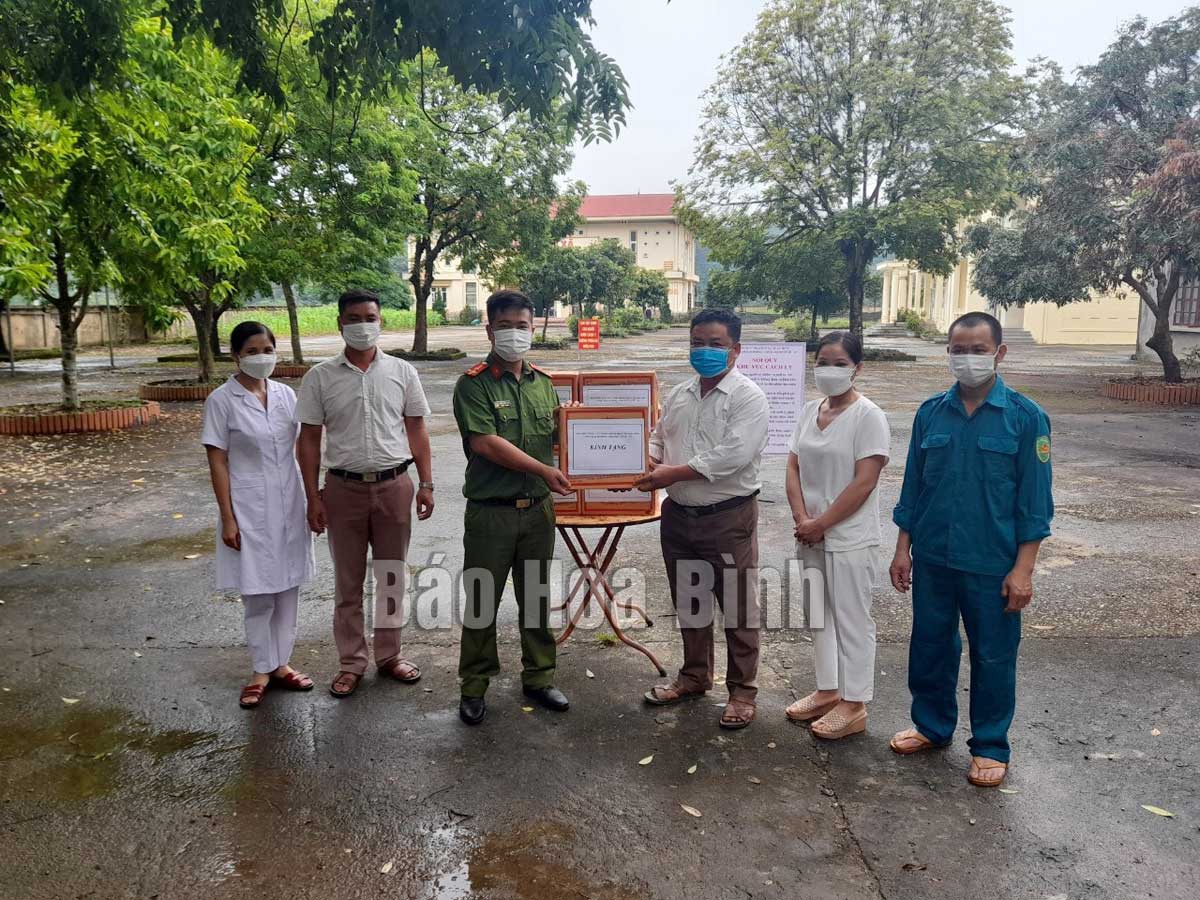
(HBO) – Political and rural security in Kim Boi district of Hoa Binh province has always been maintained over the past years. Since regular policemen have been deployed to communes and towns, measures to prevent, combat and problems related to rural security have been implemented more effectively.
Photo: Police of Kim Boi district’s Xuan Thuy commune
perform well in ensuring security and safety at quarantine centres in the
locality, which was appreciated by local residents.
In Xuan Thuy commune, security and order have always been maintained since the
deployment of the regular police force. Bui Thi Tuoi, from Dam Sang hamlet,
said that thanks to the police force who regularly patrol and make plans to
ensure security and order, people feel secure to boost economic
development.The police have strictly controlled people and vehicles
entering or leaving the area as COVID-19 cases were recently found in the
locality. People have been encouraged to actively participate in pandemic
prevention and control.
According to Lieutenant Colonel Quach Van Toan, head of the district public
security division's security team, positive changes have been seen not only in
Xuan Thuy but also in other communes since the deployment of the regular police
force to communes.
In terms of social psychology, the presence of regular police in the communes
has helped deter crimes. The closely monitoring of foreigners’ activities has
facilitated the handling of emerging incidents, preventing long-term lawsuits
or the occurrence of hotspots.
However, there remain many potential complications relating to security in
rural areas, especially involving land disputes when the district
isplanning to carry out a series of investment projects, according to the
district police.
Lieutenant Colonel Bui Van Dong, chief of the district's
division of public security, said this year there have been two cases causing
rural insecurity both relating to land disputes. He attributed to limitations
in land management and enterprises who were allocated land have not fulfilled
their commitments to local residents, adding that the lack of law compliance
among people was also a problem.
Currently, the district's public security division is continuing
to disseminate campaigns to raise people’s understanding of law enforcement and
help relevant agencies in settling the cases in accordance with their
competence and gradually stabilising the situation, Dong said.
In order to maintain rural security, the district's police will focus on
resolving differences and disputes at the grassroots level and preventing the
forming of large-scale lawsuits. The elimination of hotspots on social order
and crimes will be promoted, contributing to ensuring security and order,
effectively serving the district's socio-economic development goals, he said./.
More than just an information technology teacher, Bui Van Nien is an inspiring figure who has nurtured the scientific curiosity and creative spirit of students in Vietnam’s ethnic minority communities.
Da Bac is the most disadvantaged mountainous district in Hoa Binh province, with ethnic minorities accounting for about 90% of its population. Over the past years, the district has mobilised resources to implement ethnic policies to improve the quality of life of local people.
In recent years, Hoa Binh province has consistently prioritised the protection, care, and education of children, particularly those from ethnic minorities and disadvantaged backgrounds, by creating a safe, healthy, and nurturing environment for their all-round development.
The Steering Committee for Tobacco Harm Prevention and Control of Hoa Binh province, in coordination with the Tobacco Harm Prevention and Control Fund, held a ceremony on May 28 in response to the World No Tobacco Day (May 31) and the National No Tobacco Week (from May 25 to 31). The event was chaired by Nguyen Van Toan, Standing Vice Chairman of the provincial People’s Committee and head of the Steering Committee.
Since 2021, the Center for Industrial Promotion and Industrial Development Consulting (CIIDC) under the Department of Industry and Trade has been implementing a school lighting model as part of the plan for using energy efficiently and economically in Hoa Binh Province in the pẻiod of 2021 - 2025. This model not only aims to improve the learning conditions and enhance the education quality, but it also promotes the message of energy saving, energy security, environmental protection and contributes to the goals of socio-economic development.
In the 2024 - 2025 school year, the entire Hoa Binh provincial education sector includes 520 educational institutions and schools. Among them are 13 ethnic boarding schools with 153 classes and 4,487 students. Four of these schools have met national standards, reaching 30.7 percent.



